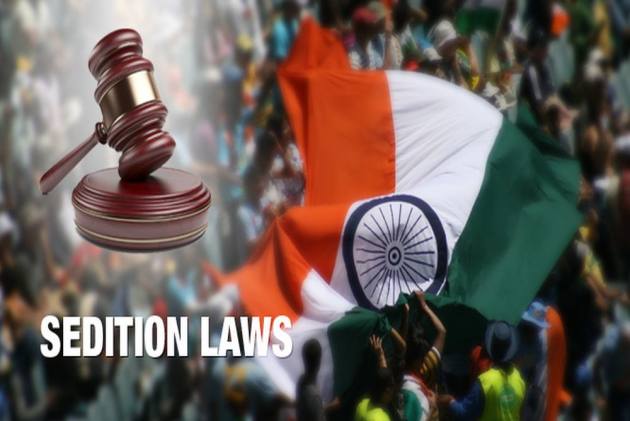What is Sedition?
Sedition is blatant behaviour that goes toward revolt against the existing order, such as speech and organisation. Subversion of a constitution and instigation of discontent with, or insurgency against, existing authority are common examples of sedition. Any uproar that is not intended at direct and open violence against the laws is considered sedition. Seditious libel is the use of seditious language in writing. A seditionist is someone who participates in or advocates sedition. Sedition is often not regarded a subversive act because it is overt, and the overt activities that may be prosecuted under sedition laws differ from one legal code to the next.
Buy Prime Test Series for all Banking, SSC, Insurance & other exams
What is Sedition Law in India?
Sedition is defined in Section 124A of the Indian Penal Code as an offence committed when a person, through words, whether spoken or written, signs, or visible representation, or otherwise, incites or seeks to incite hatred or contempt for the government constituted by law in India. Disaffection encompasses all feelings of hostility and disloyalty. Comments that do not incite or attempt to incite hatred, scorn, or disdain shall not be considered an offence under this clause.
Punishment for Sedition
Sedition is punishable under Section 124A of the Indian Penal Code. It is not a punishable offence. The penalty under Section 124A can vary from a three-year jail sentence to a life sentence, plus a fine. During the British Raj, the Indian Penal Code was enacted in 1860. Section 124A is found in Chapter VI of the Code, which deals with state offences.
Whoever brings or attempts to bring into hatred or contempt, or excites or attempts to excite disaffection towards, the Government established by law in India, by words, either spoken or written, or by signs, or by visible representation, or by any other means, shall be punished with imprisonment for life, to which fine may be added, or with imprisonment for three years, to which fine may be added, or with fine. A person prosecuted under this statute is forbidden from working for the government, must live without a passport, and must appear in court as and when required.
History Of Sedition Law:
The law was drafted in 1837 by British historian and politician Thomas Macaulay, but was mysteriously deleted when the Indian Penal Code (IPC) was implemented in 1860. Sedition laws were enacted in 17th century England when MPs believed that only positive government beliefs should be allowed to exist, as negative opinions were harmful to the government and monarchy. When it recognised the necessity for a separate section to deal with the offence, an amendment offered by Sir James Stephen in 1870 inserted Section 124A.
Sections 121 to 130 make up Chapter VI, with sections 121A and 124A being added in 1870. The British administration in India at the time was concerned that Muslim preachers on the Indian subcontinent might start a jihad against it. The need for such legislation became apparent after the British successfully suppressed the Wahabi/Waliullah Movement. This clause was used to oppress national independence campaigners throughout the Raj, including Lokmanya Tilak and Mahatma Gandhi, who were both found guilty and imprisoned.
Supreme Court Verdict on Sedition Law:
The Supreme Court, in determining the legality of Section 124A of the Indian Penal Code, has raised the bar for the government to invoke the provision, saying that “it will be desirable not to proceed” with the charge of sedition until the government evaluates the provision. The statute of sedition is effectively suspended until the court hears the matter again in July.
The petitioners’ case is that this section of legislation comes from 1898, predates the Constitution, and is being misapplied. On a previous date of hearing, the Attorney General had also cited several examples of blatant misuse of this law, such as the recital of the Hanuman Chalisa. As a result, the Supreme Court of India mentioned that they anticipate that governments will refrain from using the aforementioned provision of legislation until the re-examination of the provision is completed. Although the court did not expressly stop the provision no current criminal statute has ever been stayed by the court it effectively halts its execution. The court ruled that cases that are currently before trial will be held in abeyance, and that it will hope and expect that governments will refrain from filing new FIRs, investigating cases, or adopting coercive action against accused.
If a new case is filed under Section 124A of the IPC, the affected parties are free to approach the appropriate courts for relief and are free to seek appropriate remedies from the respective courts.
The courts are to evaluate the reliefs sought, taking into mind the current ruling as well as the Union of India’s unambiguous position. The Supreme Court has placed the onus on the government to guarantee that no frivolous sedition charges are filed to abuse the law, despite the judiciary’s prohibition. The federal government informed the court that it would issue a direction to states and union territories on how the sedition statute would be used in the future.
The Supreme Court’s major legal challenge is whether the 1962 judgement in Kedar Nath Singh v Union of India was correctly decided. Speech that is likely to provoke disruption of public order is considered sedition, according to the Kedar Nath Singh judgement, which affirmed the constitutional validity of Section 124A. A seven-judge panel will have to assess if that verdict was correct, and whether a statute against sedition may be considered an exception to free speech.
In the end, unless Parliament rescinds the sedition legislation, the court will have to decide the fundamental issue. Even if the provision is weakened or replaced with a new legislation, it must pass the constitutionality test before the court.
FAQs
Ques: When was the sedition Act passed in India?
Ans. The law was drafted in 1837 by British historian and politician Thomas Macaulay, but was mysteriously deleted when the Indian Penal Code (IPC) was implemented in 1860. Sedition laws were enacted in 17th century England when MPs believed that only positive government beliefs should be allowed to exist, as negative opinions were harmful to the government and monarchy.
Ques: What is Sedition Law in simple words?
Ans. Sedition is defined in Section 124A of the Indian Penal Code as an offence committed when a person, through words, whether spoken or written, signs, or visible representation, or otherwise, incites or seeks to incite hatred or contempt for the government constituted by law in India.
Ques: What is Sedition Act of 1870 in India?
Ans. When it recognised the necessity for a separate section to deal with the offence, an amendment offered by Sir James Stephen in 1870 inserted Section 124A. Sections 121 to 130 make up Chapter VI, with sections 121A and 124A being added in 1870. The British administration in India at the time was concerned that Muslim preachers on the Indian subcontinent might start a jihad against it.
Ques: Is Sedition is a Crime?
Ans. Yes, Sedition is a crime. Sedition is blatant behaviour that goes toward revolt against the existing order, such as speech and organisation. Subversion of a constitution and instigation of discontent with, or insurgency against, existing authority are common examples of sedition. Any uproar that is not intended at direct and open violence against the laws is considered sedition.




 Punjab Launches ‘Meri Rasoi’ Scheme: Fre...
Punjab Launches ‘Meri Rasoi’ Scheme: Fre...
 PhonePe Launches AI-Powered Natural Lang...
PhonePe Launches AI-Powered Natural Lang...
 Geneva to Host AI Summit 2027 & UAE ...
Geneva to Host AI Summit 2027 & UAE ...








